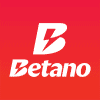Most Canadian gamblers can keep their winnings tax-free, as the Canada Revenue Agency (CRA) classifies these gains as non-taxable windfalls. The exemption, however, does not extend across the board for taxes on casino winnings Canada.
Those who make gambling their profession must report their earnings to tax authorities, falling under both federal and provincial tax regulations. These tax implications reflect the CRA’s distinction between casual players and those who derive their primary income from gambling activities.
The current regulations shape both traditional and digital gambling markets across Canada, setting clear guidelines for players navigating the country’s gaming landscape and addressing the question: is gambling taxed in Canada?
Overview of the Online Gambling Scene in Canada
The Canadian digital gambling industry has surged to unprecedented levels, marking significant expansion across the country as new technologies and rising consumer interest reshape the betting landscape, leading many to ask, are gambling winnings taxable in Canada?
Unlike other regulated industries, gambling oversight remains firmly in provincial hands rather than under federal control, creating a complex web of regulations across the nation. This decentralized approach has produced varying standards and requirements throughout Canada’s betting market.
Industry analysts note this regulatory fragmentation presents a mixed scenario: while some operators leverage the diverse provincial frameworks to expand their presence, others face challenges navigating multiple jurisdictions. Meanwhile, players encounter different rules and protections depending on their location, raising the question, are casino winnings taxable in Canada?
Ontario Leads Canada’s Regulated Online Gambling Market
Ontario has emerged as Canada’s frontrunner in regulated online gambling, requiring strict licensing for all digital betting platforms operating within provincial borders. The province’s iGaming framework, introduced in 2022, has established new standards, including guidelines on taxes on gambling winnings Ontario.
Meanwhile, British Columbia and Quebec maintain their own state-operated gambling platforms. These government-sanctioned sites—PlayNow in British Columbia and Loto-Québec in Quebec—operate under direct provincial oversight, offering players guaranteed consumer protections under the casino winnings tax Canada framework.
Provincial officials report these regulated platforms serve a dual purpose: safeguarding public interests while channeling gambling revenues into essential government programs. The success of these regulated markets could influence future policy decisions across other Canadian provinces.
Regulatory Gaps Persist In Canadian Online Gambling Sector
Despite progress in some regions, significant portions of Canada’s online gambling market remain largely unregulated, as several provinces have yet to establish comprehensive oversight frameworks, leaving players wondering, are casino winnings taxable?
This regulatory vacuum has led many Canadian bettors to offshore gambling websites, operating in undefined legal territory. While these international platforms remain accessible to Canadian players, they fall outside domestic regulatory control, raising concerns about consumer protection, fair play standards, and dispute resolution mechanisms.
Industry experts point to this regulatory divide as evidence for needed reform. “The current situation, where regulated and unregulated markets operate side by side, underscores the urgency for consistent national standards,” said one provincial gaming commission spokesperson. This disparity continues to shape taxes on gambling winnings Canada.
Taxation Laws Regarding Gambling in Canada
Canadian tax authorities maintain a clear distinction in their treatment of gambling proceeds, with classification depending on whether the activity constitutes a recreational pursuit or a professional endeavor, forming the foundation of gambling tax Canada rules.
The Canada Revenue Agency (CRA) generally views winnings from casual betting as non-taxable windfalls, allowing recreational players to keep their entire prizes. However, those who make gambling their primary occupation face different rules, with their earnings falling squarely under taxable income.
Tax officials employ multiple criteria to differentiate between hobby players and professional gamblers, shaping how casino winnings are treated under Canadian tax law.
Tax Implications for Games of Chance
Canadian tax officials emphasize that the classification of gambling proceeds varies significantly based on game categories, with pure chance-based activities like lotteries and slots typically generating tax-exempt winnings for casual players under the casino tax framework.
However, tax experts note that professional approaches to even these chance-based games could trigger tax obligations. “The CRA focuses on the gambler’s methodology and intent rather than the game itself,” explains a senior tax analyst familiar with gaming regulations.
This nuanced approach to gambling taxation requires careful consideration from Canadian players, particularly those straddling the line between casual and professional play, as misclassification could lead to compliance issues with federal tax authorities.
Canada’s Tax Authority Sets Criteria For Professional Gambling Status
The Canada Revenue Agency (CRA) employs detailed guidelines to differentiate between recreational and professional gamblers, a distinction that carries significant implications under gambling winnings tax Canada policies.
Tax officials closely examine gambling patterns to determine whether betting activities constitute a casual hobby or a professional venture. This classification ultimately decides whether winnings face taxation under Canadian law.
The CRA’s approach to gambling income reflects broader efforts to maintain clear boundaries between leisure activities and professional revenue streams, according to tax experts who regularly handle gaming-related cases.
Criteria for Classification
The Canada Revenue Agency (CRA) has established specific indicators to identify professional gambling operations, focusing on three primary areas that distinguish business activities from recreational betting.
- Systematic Approach: Engaging in gambling with a high degree of organization and planning, akin to operating a business, suggests professional status. This includes maintaining detailed records, employing strategies, and managing gambling-related expenses.
- Skill and Expertise: Possessing specialized knowledge or skills that significantly reduce the element of chance indicates a professional approach. For example, consistent success in skill-based games like poker may lead the CRA to classify an individual as a professional gambler.
- Profit Motive: A clear intention to earn a livelihood from gambling activities, rather than treating them as a hobby, is a strong indicator of professional status. Reliance on gambling winnings as a primary source of income supports this classification.
Implications of Professional Status
Professional gamblers face both tax obligations and potential deductions under Canadian law, according to Canada Revenue Agency (CRA) guidelines. Once classified as a business, all gambling proceeds must be declared as income, subjecting winners to both federal and provincial taxation under the Canada gambling tax system.
However, this business designation offers some advantages, tax officials note. Professional gamblers can claim legitimate gambling-related expenses and offset losses against their income, provided they maintain detailed financial records of their activities.
The CRA emphasizes that determining professional status remains a complex process, evaluated individually for each case. “The line between recreational and professional gambling isn’t always clear-cut,” says a senior tax analyst, recommending that players seeking clarity should consult tax professionals or review official guidelines to ensure proper compliance.
Rules and Regulations for Cross-Border Gambling
Canadian gamblers winning abroad face complex tax obligations that span multiple jurisdictions, creating a challenging landscape of international tax compliance.
U.S. casinos automatically withhold 30% of winnings from Canadian players, though bilateral tax agreements offer potential relief. “The Canada-U.S. Tax Treaty allows Canadians to recover some of these withheld amounts through U.S. tax filings,” explains a cross-border tax specialist.
The Canada Revenue Agency (CRA) requires residents to declare worldwide income, including foreign gambling proceeds. While recreational players generally enjoy tax-exempt status on their winnings, professional gamblers must report all earnings, regardless of origin.
Tax treaties between Canada and numerous countries help prevent double taxation through foreign tax credits, though provisions vary by jurisdiction. These agreements can significantly reduce Canadian tax obligations for those who’ve already paid taxes abroad.
“International gambling taxation involves intricate interplay between domestic and foreign tax laws,” notes a senior tax advisor, emphasizing the importance of professional guidance. Understanding these complex regulations proves crucial for Canadian gamblers operating across borders, as missteps can lead to significant tax complications.
The intersection of various tax treaties, withholding requirements, and professional gambling status creates a complex web of obligations that demands careful navigation and, often, expert consultation to ensure full compliance.
Guidance For Canadian Gamblers
Tax specialists and gaming regulators have outlined essential practices for Canadian gamblers to maintain compliance with federal and provincial requirements, emphasizing the critical role of detailed documentation in adhering to gambling taxes Canada.
Record-Keeping Crucial
The Canada Revenue Agency (CRA) stresses the importance of maintaining comprehensive gambling records, regardless of player status. “Detailed logs of wagers, wins, and losses provide crucial evidence if tax questions arise,” notes a CRA compliance officer. This documentation becomes particularly vital for frequent players who may face increased scrutiny.
Professional Guidance Recommended
Tax experts urge gamblers to seek professional consultation given the complex nature of gaming regulations. “The line between recreational and professional gambling often requires expert interpretation,” says a senior tax advisor. This guidance is essential for understanding questions like, is sports betting taxable in Canada?
Provincial Rules Vary
Canada’s province-by-province approach to gambling regulation creates distinct regional requirements. While some jurisdictions operate government-run online platforms, others permit private operators under varying restrictions. Officials emphasize that understanding local rules remains essential for legal compliance.
“The gambling landscape differs significantly across provinces,” explains a gaming commission representative. “Players must familiarize themselves with their specific regional requirements to ensure lawful participation.”
Canadian Gambling Tax Landscape Requires Careful Navigation
Canadian gamblers face a complex regulatory environment that draws sharp distinctions between recreational betting and professional gambling operations, raising the common question: do you pay taxes on casino winnings in Canada? This distinction carries significant implications for tax obligations.
While most Canadian players enjoy tax-free winnings under current regulations, professional gamblers encounter heightened oversight and specific reporting requirements from tax authorities. The distinction proves crucial for determining tax obligations.
Tax experts emphasize that comprehensive record-keeping and professional guidance remain essential, particularly for those engaging in cross-border gambling. “Understanding your obligations, whether as a casual or professional player, is fundamental to compliance,” notes a veteran tax advisor.
The evolving nature of Canada’s gambling sector, coupled with varying provincial regulations, creates an environment where informed participation becomes increasingly important. Players who maintain awareness of their legal obligations while documenting their activities position themselves for both compliance and protection under Canadian law.
Sources:
https://www.agco.ca/en/lottery-and-gaming/internet-gaming
https://loteries.lotoquebec.com/en/lotteries
Canada Revenue Agency (CRA) – Income Tax Folio S3-F9-C1:
https://www.canada.ca/en/revenue-agency/services/tax/technical-information/income-tax/income-tax-folios-index/series-3-property-investments-savings-plans/series-3-property-investments-savings-plans-folio-9-miscellaneous-payments-receipts/income-tax-folio-s3-f9-c1-lottery-winnings-miscellaneous-receipts-income-losses-crime.html
Canada Revenue Agency (CRA) – Forms and Publications:
https://www.canada.ca/en/revenue-agency/services/forms-publications.html
Canada Revenue Agency (CRA) – Main Page:
https://www.canada.ca/en/revenue-agency.html














